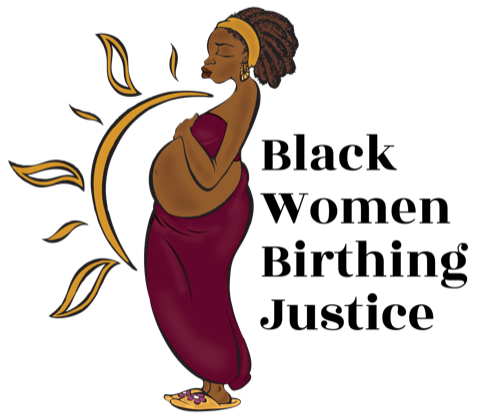Still We Rise: Black Maternal Health Research Reenvisioned
What started as an idea, metamorphosed into a day of intention and a space with great history filled with Black women activists, researchers, birth workers, visionaries and clinicians collectively sick and tired of being sick and tired. Tired we were, but invigorated we felt. On a dewy Sunday morning, I stood in a circle of 18 strong, all locking hands. Breathing slowly in ...and then out, the smell of sage filling my lungs, I followed the requests to call out the names of my ancestors and foremothers. Lannie, Betty, Thelma, Anna...When prompted to share one word that would allow me to remain grounded throughout the meeting, I yelled out, “Legacy.” Starting the convening in this way reinforced my affinity to maternal health equity and birth justice work.
On July 29th, the Black Mamas Matter Alliance (BMMA) Research Working Group Collaborators and Advisors convened at the MotherHouse, in Atlanta, GA to evaluate select programs and interventions for their merit in improving health outcomes for Black Mamas. BMMA is a Black women-led cross-sectoral national alliance of organizations committed to advancing health and promoting rights and justice for Black Mamas. BMMA is co-directed by Angela Doyinsola Aina and Elizabeth Dawes Gay, and anchored by four Working Groups, including Policy, Culture Shift, Care and Research.
In April, BMMA’s Care Working Group, led by Dr. Joia Crear Perry, released the BMMA Black Paper: Setting the Standard for Holistic Care of and for Black Women. This paper outlines BMMA’s principles for holistic care for Black Mamas and names racism, racial discrimination and systematic oppression as contributing factors to increased rates of maternal mortality and morbidity among Black mamas. The Research Working Group is developing a report that will compliment the Black Paper, outlining BMMA’s research ethics and principles for Black Mamas. The report will also highlight the history of medical experimentation with Black women’s bodies, describe the importance of creating space for Black women in maternal health research, and provide recommendations for improving Black Mamas maternity care.
As a follow up to this work, BMMA is hosting the Black Maternal Health Conference and Training Institute in Atlanta, GA December 7-9th. The Conference and Training Institute will offer Black women, professionals, care and service providers the opportunity to network, learn, and share best practices, knowledge, and culturally relevant information on Black maternal health.
The Research Working Group consists of three sub-groups assigned to address specific programs/interventions along the pregnancy to postpartum continuum: Reproductive Life Planning, CenteringPregnancy and Postpartum Mental Health. These programs/ interventions are deemed as evidence-based by the larger maternal and child health community for reducing adverse health outcomes around the time of pregnancy and birth. Are these programs evidence-based for Black women? Do these interventions improve health outcomes for Black Mamas? Are these programs implemented in ways that honor Black Mamas?
We challenge the notion that programs that seemingly work for all, by default are “good enough” for Black mamas and demonstrate that limited evidence of the specific impact on Black Mamas health is concerning. According to the Centers for Disease Control and Prevention (CDC), Black women are three to four times more likely to die due to pregnancy-related complications than white women. Place-specific risk of pregnancy-related morbidity and mortality among Black women are higher than the national estimates in some states, such as New York. To address the maternal health epidemic in the United States, requires strategies that center Black mamas and are inclusive of Black activists, Black birth workers, Black women researchers, Black families, and Black artists. This is Black maternal health research reenvisioned.
We echo the sentiments of Black Women Birthing Justice that everyone deserves a positive and healthy birth experience not restricted by life circumstances and systematic oppression. We aim to continue planting seeds of hope and inspiration to show Black women researchers that their work matters; their research is critical for advancing health equity and saving Black lives.
------------------------------
Further reading on Black women and maternal health research:
Birthing Justice: Black Women, Pregnancy and Childbirth
By Us not For Us: Black Women Researching Pregnancy and Childbirth in Research Justice: Methodologies for Social Change
Battling Over Birth: Black Women and the Maternal Health-Care Crisis
About the Author:
Isabel (Bella) Morgan, MSPH is a PhD student in the Department of Maternal and Child Health at UNC Chapel Hill. Prior to joining the doctoral program, Bella worked as a Reproductive Epidemiology Fellow at the CDC where she evaluated evidence on the safety of contraception for women with specific medical conditions and examined factors associated with postpartum visit attendance. Previously, as a Health Equity Fellow with Nemours A.I. DuPont Hospital for Children, she examined trends in hospital readmissions among asthma patients using data from electronic medical records and developed a health equity dashboard. Bella co-leads the Research Working Group with Black Mamas Matter Alliance. Lover of all things Maya Angelou, Zora Neale Hurston and Lauryn Hill, she is a free-spirit who enjoys spending time with her nephew, engaging with birth workers, and playing volleyball.
Image: Black Mamas Matter Alliance Research Working Group
Got something to say? BWBJ publishes blogs by black women on issues related to birth justice. Contact us for more details.
